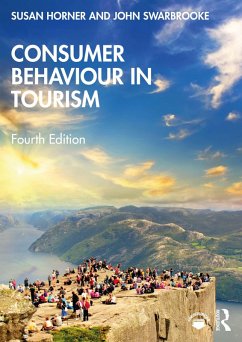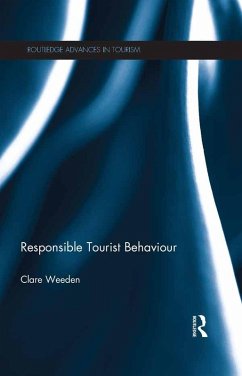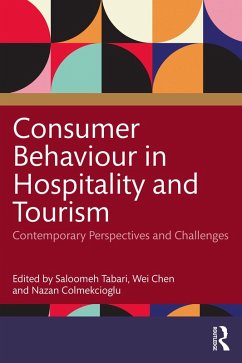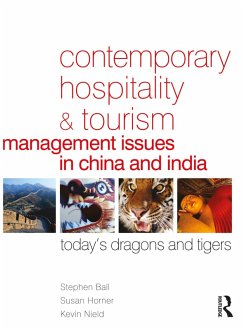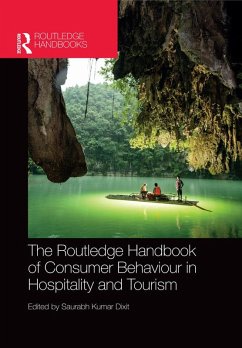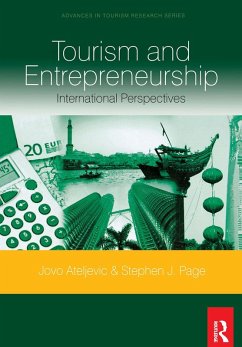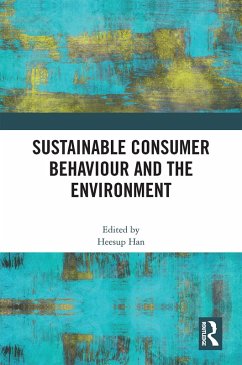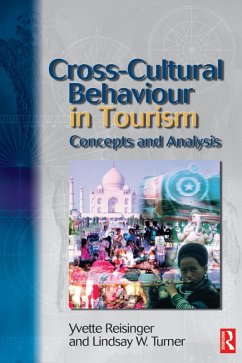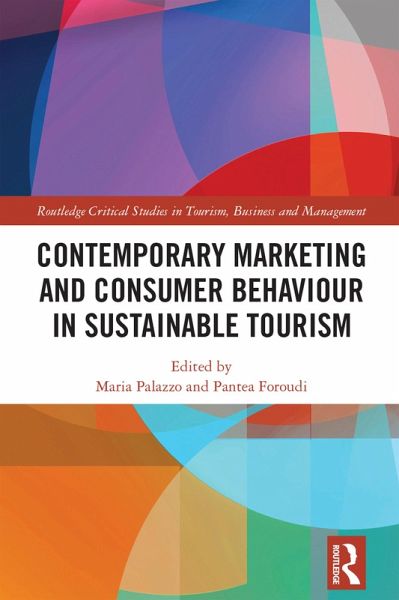
Contemporary Marketing and Consumer Behaviour in Sustainable Tourism (eBook, PDF)
Versandkostenfrei!
Sofort per Download lieferbar
42,95 €
inkl. MwSt.
Weitere Ausgaben:

PAYBACK Punkte
21 °P sammeln!
This book delves into contemporary trends in consumer behaviour and marketing strategies in the field of sustainable tourism. It explores effective promotion methods for sustainable tourism development, emphasizing the involvement of various stakeholders such as communities, local residents, visitors, organizations and governments.With an international perspective, this interdisciplinary book specifically examines the human aspects of environmental change, covering topics like smart growth; heritage; place identity, place image, and reputation; technology and innovation; life-cycle thinking an...
This book delves into contemporary trends in consumer behaviour and marketing strategies in the field of sustainable tourism. It explores effective promotion methods for sustainable tourism development, emphasizing the involvement of various stakeholders such as communities, local residents, visitors, organizations and governments.
With an international perspective, this interdisciplinary book specifically examines the human aspects of environmental change, covering topics like smart growth; heritage; place identity, place image, and reputation; technology and innovation; life-cycle thinking and circular economy; waste management; ecosystems and global change; transitions to low-carbon economy; etc. The book raises several original research questions about the essential nature of sustainable tourism in the post-pandemic era, aiming to fill knowledge gaps and drive transformative change.
Offering a blend of theoretical insights and practical case studies, this book is valuable for students, researchers and academics in business management, marketing, communication and tourism, as well as for managers and decision-makers.
With an international perspective, this interdisciplinary book specifically examines the human aspects of environmental change, covering topics like smart growth; heritage; place identity, place image, and reputation; technology and innovation; life-cycle thinking and circular economy; waste management; ecosystems and global change; transitions to low-carbon economy; etc. The book raises several original research questions about the essential nature of sustainable tourism in the post-pandemic era, aiming to fill knowledge gaps and drive transformative change.
Offering a blend of theoretical insights and practical case studies, this book is valuable for students, researchers and academics in business management, marketing, communication and tourism, as well as for managers and decision-makers.
Dieser Download kann aus rechtlichen Gründen nur mit Rechnungsadresse in A, B, BG, CY, CZ, D, DK, EW, E, FIN, F, GR, HR, H, IRL, I, LT, L, LR, M, NL, PL, P, R, S, SLO, SK ausgeliefert werden.




